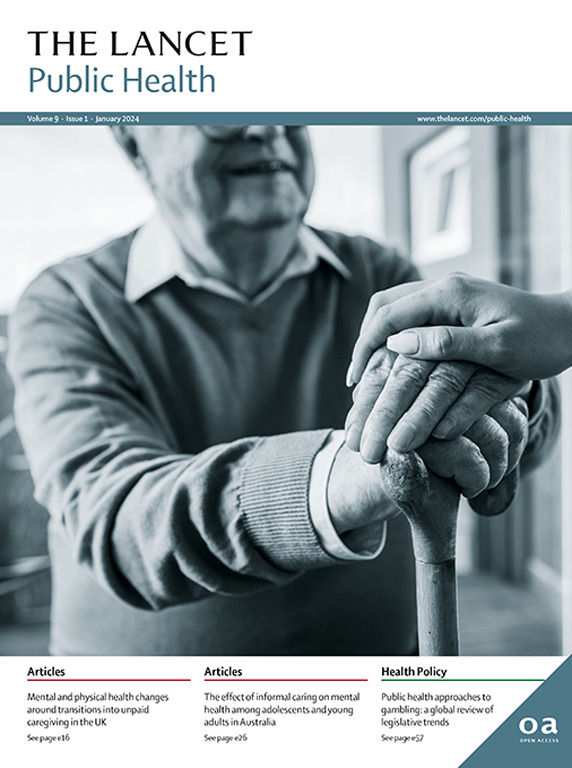Public health in Germany: structures, dynamics, and ways forward
IF 25.4
1区 医学
Q1 PUBLIC, ENVIRONMENTAL & OCCUPATIONAL HEALTH
引用次数: 0
Abstract
Despite Germany's robust economy, comprehensive social welfare system, and the country ranking third among Organisation for Economic Co-operation and Development countries in terms of per-capita health spending, its health indicators still lag behind those of other European nations. Germany also has one of the highest prevalences of major modifiable risk factors for non-communicable diseases within the EU. This Health Policy provides an overview of the development, structures, and actors in public health in Germany, highlighting possible explanations for the country's underperforming health indicators and suggesting a way forward. This Health Policy is structured along the essential public health operations. We identify the absence of a strong central institution for public health, inadequate funding for disease prevention and health promotion, and little interoperability in data collection as major challenges. The country's decentralised governance structure allows flexibility, especially at the community level, but leads to scattered responsibilities and little coordination between sectors. We also note the absence of a public health strategy. The current system's focus on curative care and individualised medicine has led to a neglect of disease prevention and health promotion. Furthermore, the country's strong economic interests and powerful lobbies have hindered the implementation of effective public health policies. To address these challenges, we recommend developing a public health identity, creating a comprehensive public health strategy, fostering a culture of health promotion and disease prevention that encompasses all areas and does not shy away from tackling the commercial determinants of health, and strengthening the connection between medicine, public health practice, and research.求助全文
约1分钟内获得全文
求助全文
来源期刊

Lancet Public Health
Medicine-Public Health, Environmental and Occupational Health
CiteScore
55.60
自引率
0.80%
发文量
305
审稿时长
8 weeks
期刊介绍:
The Lancet Public Health is committed to tackling the most pressing issues across all aspects of public health. We have a strong commitment to using science to improve health equity and social justice. In line with the values and vision of The Lancet, we take a broad and inclusive approach to public health and are interested in interdisciplinary research.
We publish a range of content types that can advance public health policies and outcomes. These include Articles, Review, Comment, and Correspondence. Learn more about the types of papers we publish.
 求助内容:
求助内容: 应助结果提醒方式:
应助结果提醒方式:


